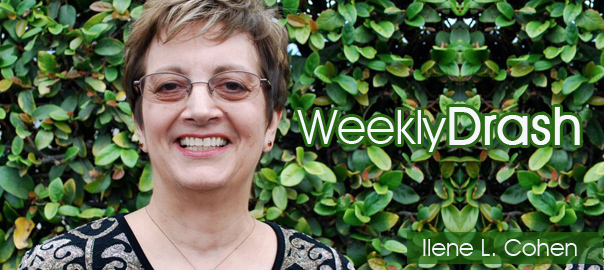Adult B’nei Mitzvah Class of 2014: Ilene Cohen

In our Torah portion, Mase’ei, from the Book of Numbers, the phrase “Cities of Refuge” is mentioned several times. Cities of Refuge were actual cities that were created for people who had involuntarily caused someone’s death. These cities were necessitated by the custom of the victim’s family taking revenge by killing the person responsible for the death.
Today, we do not have actual “Cities of Refuge”, but there are ways to find sanctuary and spiritual balance through the “holiness of words.” We can turn to the holy words in the First Five Books of Moses, in our Talmud, in the prayers of our Siddurim, and the marvelous stories of Jewish Midrashim.
In Judaism, we have a Yetzar Herah, an inclination towards evil, and a Yetzar Tov, an inclination toward goodness. None of us is perfect and it is a delicate balance to grapple with these forces.
This brings me to one of my favorite stories which happens to be an old Cherokee legend: A Grandfather is speaking to his grandson and tells him that there are two wolves battling inside all human beings. One wolf represents hatred, envy, greed, anger, narcissism, idolation, and pessimism. The other wolf represents love, empathy, generosity, kindness, self empowerment and a desire to help repair the world and serve God. The Grandson asks, “which wolf will win the fight?” Grandfather answers, “It all depends on which one you feed.”
There a plenty of worrisome events going on in the world right now: war, terrorism, crime, climate change, the growing disparity between the rich and the poor, and the battle for equal rights just to name a few. But if we focus only on the negative, we are actively feeding the wolf that is full of anger and doom. If in the middle of sadness, we can remind ourselves that there are many people in this world who work tirelessly to help others, and who are dedicated to protecting our environment, then we are still able to feed the wolf full of kindness and love.
How else can we feed this good wolf: by remaining hopeful in the face of adversity, by treating people as we would like to be treated, by volunteering our time, by being a model of kindness and thoughtfulness, and by learning how to truly listen to one another.
Try to think about which wolf you feed as you live your life each day. If you listen to the holy words of Torah, it tells us how to feed the good wolf and how to perpetuate and pass on ethical teachings to the next generations.
Here is my prayer for all of us: “Adonai, may we find a spiritual balance, a refuge and a safe place in the holiness of words written in the great books of Torah. Help us to open our hearts to the beauty and wonder that surrounds us and to the holiness of your presence. Remind us to be grateful for what we have, especially our extraordinary BCC family and community.
Shabbat Shalom
Friday, July 25, 2014




